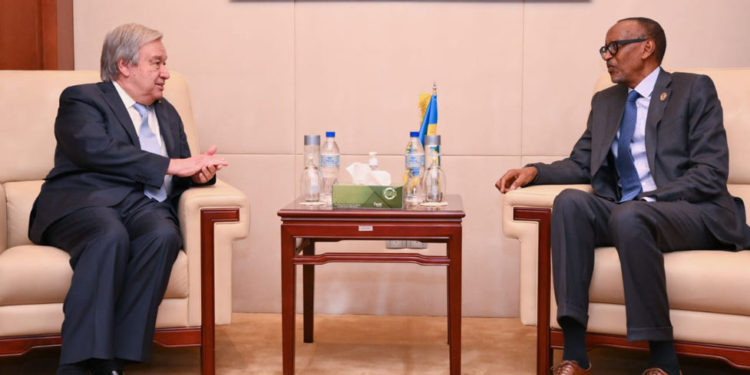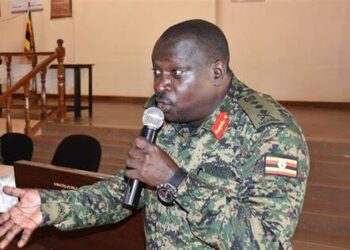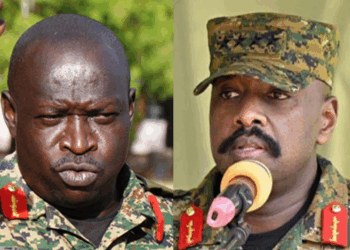By CHIMPREPORTS
The government of Rwanda has cautioned the United Nations (UN) against providing logistical support for the Southern African Development Community (SADC) Mission in the Democratic Republic of Congo (SAMIDRC), saying the move could ignite a regional conflict.
“The intended UN logistical and operational support to the FARDC allied forces emboldens the Government of DRC in pursuing a military solution in place of a negotiated and peaceful solution of the crisis,” said Rwanda’s Foreign Minister Vincent Biruta in a letter to the UN Security Council on February 12, 2024.
SAMIDRC comprises forces from South Africa and Tanzania which have put up stiff resistance against M23 rebels in their quest to capture the strategic town of Sake and Goma city.
The force has also conducted heavy long-range artillery strikes and aerial bombardments of territories controlled by Rwanda-backed M23 rebels, killing some of the movement’s commanders and stalling the insurgents’ plans to take full control of the mineral-rich North Kivu.
Rwanda’s letter to the UN comes a week after the Under-Secretary-General for Peace Operations, Mr. Jean- Pierre Lacriox said the international body was considering providing logistical and operational support to SAMIDRC.
During his February 7 meeting with the SAMIDRC Force Commander, General Dyakopu Monwabisi, the Under-Secretary-General for Peace Operations, Lacriox stressed the importance of joint coordination to support the Congolese national army (FARDC) in their light against “armed groups” in eastern DRC.
The Security Council recently mandated MONUSCO to examine ways in which it could provide limited logistical and operational support to the SADC force (SAMIDRC).
Lacriox said the UN was currently exploring options for providing this support and that proposals would be made to the Security Council, which would decide on the nature of this support and its modalities.
The UN support of SAMIDRC, especially aerial assets for intelligence gathering and coordinating more strikes deep in M23 territory would see DRC quickly recover large swathes of territory lost to rebels.
Rwanda reacts
However, Rwanda believes the move would pose several dangers including “erosion of any peaceful settlement of the decades-long crisis in the eastern DRC, resurgence of ethnic confrontation and risk of a regional conflict given the determination of the presidents of DRC and Burundi to cause a regime change in Rwanda.”
Biruta observed: “The Government of Rwanda would like to request the UNSC to avert the escalation of the conflict in eastern DRC, by not reconsidering the request to provide logistical and operational support to the FARDC-led coalition, which could only feed into more escalation.”
Biruta further said the escalation of the conflict in the eastern DRC comes in the context of public declarations by the presidents of DRC and Burundi to support a regime change in Rwanda and heightened ethnic tensions in the region.



“The hyper- militarization of the eastern DRC with presence of ethnically motivated forces, both state and non-state is a serious concern to Rwanda,” said Biruta, adding, “The Government of Rwanda is concerned that instead of condemning the ethnic killings in eastern DRC and belligerent declarations of the presidents of DRC and Burundi, the UN intends to support the coalition that is behind this escalation.”
“The Government of Rwanda wishes to note that the conflict has persisted because the international community has deliberately ignored the root causes of the conflict, which include among others support to and preservation of Rwandan genocide forces in eastern DRC, refusal of the Government of DRC to address genuine grievances of Congolese Rwandophones, especially Tutsi, and refusal to repatriate hundreds of thousands of Congolese refugees living in the region.”
However, Kinshasa and Gitega accuse Rwanda of helping M23 rebels and Red Tabara rebels to destabilise DRC and Burundi.
The United Nations last week reported that on February 7, a UN observation drone was targeted by Surface to Air Missiles (SAM) fired from coordinates 0.0607S 29.2548E approximately 15 miles North west of Rutshuru which is controlled by M23 rebels.

The drone images showed that Rwandan forces used a Chinese anti – aircraft system called Yitian using a TY 90 missile based on a WMZ 551 6 X6 wheeled IFV. B, underscoring the partnership between the rebels and Kigali.
Rwanda has denied supporting M23 rebels and urged the UNSC to avert the escalation of the conflict in eastern DRC, by not reconsidering the request to provide logistical and operational support to the FARDC-led coalition, which could only feed into more escalation.
“The UN Security Council should instead encourage the Government of DRC to pursue a peaceful solution within the Nairobi and Luanda processes.”
Refugees
UNHCR, the UN Refugee Agency, earlier this week said it was deeply concerned by the dire consequences for civilians, including an estimated 135,000 internally displaced people fleeing the town of Sake towards the nearby provincial capital Goma.
UNHCR and partners said they were deeply alarmed by reports of bombs falling on civilian locations, including in the Zaina site in Sake and the Lushagala site in Goma, where as many as 65,000 internally displaced people are sheltering, raising significant concerns for their safety.
The escalating use of heavy artillery and shelling in clashes around Goma poses grave threats to civilian and displaced populations, threatening more casualties and the destruction of buildings used as communal shelters. The presence of unexploded ordnance poses a particular threat to children.
Since the first week of February, at least 15 civilians have been killed and 29 injured around Goma and Sake.








Discussion about this post